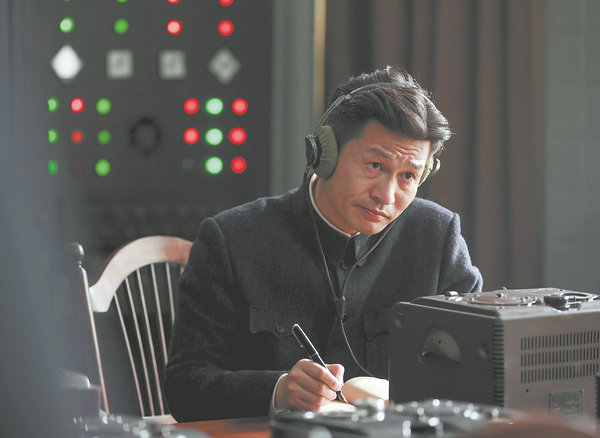

To prepare for the role, Yu immersed himself in archival materials. He read Wu's final letter before execution, interrogation transcripts, and testimonies from surviving members of the network. "Wu Shi's idealism and his devotion to the people reflect the spirit of an entire generation of Chinese intellectuals," Yu says.
Sharing that he was moved to learn the series has resonated with some young viewers in Taiwan, Yu says that people on both sides of the Taiwan Strait are connected by shared roots. After late 1949, many who moved to Taiwan came from provinces across the motherland, including Jiangsu, Zhejiang, Shandong and Henan. They carried with them a deep nostalgia for home — a longing for reunion that lies at the heart of why the series has struck a chord with so many audiences, adds Yu.
Lu recalls how dedicated Yu was on set. "Yu would film all day and then stay up late for meetings with us after wrap. These sessions often lasted until 2 or 3 in the morning, and some even continued until sunrise," she says.
"When it came to emotional scenes, Yu had a remarkable ability to refine and elevate the details we had initially outlined. The script's emotional depth owes much to his contributions," she adds.